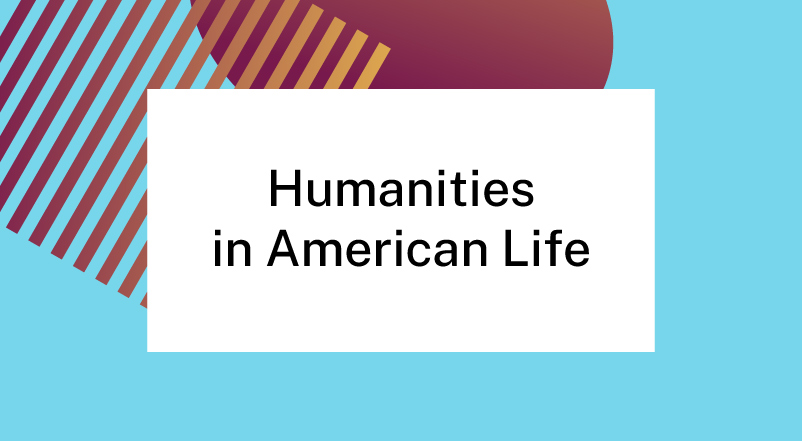Distinguished University Professor in African American Studies at Wayne State University and Adjunct Professor in the Department of Afroamerican and African Studies at the University of Michigan, Dr. Melba Boyd sees the humanities as playing a specific and significant role in Detroit’s evolution. In turn, she notes, looking at that development also helps us understand changing perceptions of the humanities at large.

Schwartz Prize Insights: A Q&A with Two of Last Year’s Winners
Last year, our nation faced exceptional circumstances, and humanities councils responded in kind with an incredible array of programming. So for the first time, the Federation awarded the Schwartz Prize in two categories: one for outstanding public humanities programming and the other for innovative programming created specifically in response to the coronavirus pandemic.

Important Notice of the 2021 Annual Business Meeting
The 2021 Annual Business Meeting of the Federation House of Delegates will take place virtually on Saturday, November 13 from 4:00 to 5:30 pm EST.
Statement on the Federation’s Diversity, Equity, Inclusion and Access Work
In July 2019, the Federation board unanimously approved the following resolution: “the Federation affirms its commitment to address DEI by first developing and implementing a DEI strategy involving Federation board and staff and then assembling a task force to provide DEI leadership to councils.”

‘Chronic Catastrophe’: A New Podcast from California Humanities Emerging Journalist Fellows
“Journalism is more than just writing and reporting, journalism is so much more than that,” Camacho said. “I feel like a lot of people think journalism is a lot about just reporting the facts, and that’s about it—and it is that, but it’s also telling the stories of people who can’t use their voice.” Read more here.

Deadline Extended! The 2021 Call for Schwartz Prize Nominations
The Federation of State Humanities Councils is now accepting nominations for the 39th annual Helen and Martin Schwartz Prize, established by former Federation board member Martin Schwartz and his wife Helen to recognize outstanding work in the public humanities.

“The Future of Journalism, the Fate of Democracy” with Virginia Humanities
In Virginia alone, we lost 39 weekly newspapers between 2004 and 2020 and three dailies, a 27% decrease in news publications statewide.

Rural Goings-on in Kentucky
The idea of rural America is always shifting, but it’s seen a dramatic change during the pandemic. In Kentucky, two Smithsonian Museum on Main Street traveling exhibits, “Voices and Votes: Democracy in America” and “Crossroads: Change in Rural America,” are currently touring, centering rural communities’ past, present, and future. Read more here in “Rural Goings-on in Kentucky.”

Rural Rewards: An Economic Executive Director on the Strength of Small Towns
The idea of living in a rural town has changed during the pandemic, Long said, so that there’s a lot of competition for talent across urban and rural communities. “People have figured out that they can work from anywhere, and people can retire and move to just about anywhere they want to live,” Long said. “And so you really gotta be a community that people want to move to.” Read more here in Rural Rewards

For Pride Month: Humanities Council Programs
For Pride Month, humanities councils join parades across the country with histories of change, LGBTQ ancestors, jazz, politics, literature, film, and stories past, present, and future. And people have noticed: among many, read stories about Vermont Humanities Council and Rhode Island Council for the Humanities programs that celebrate the contributions of trans and LGBTQ+ individuals and check out the list inside for additional programs.

Caring Labor Sustains Life: Women’s Labor Activism in the Appalachian South
“These are men who worked for wages, and we associate them with the building of modern America. The coal miner in particular is an icon of the American working class. But what about domestic workers, farm laborers, or workers in the service industry? What about non-wage work?” said Dr. Jessica Wilkerson in a virtual West Virginia Humanities Council “Little Lecture” on May 30.

Total Town Makeover with Missouri Humanities
“The size doesn’t matter, it’s the mindset,” Andrew McCrea said on January 21 in part one of “Total Town Makeover,” a Missouri Humanities two-part series drawing from McCrea’s book of the same name. Focused on rural economies, the series takes root in questions like, why does one small town thrive while another declines? What makes people want to live and work in one community but not another?

